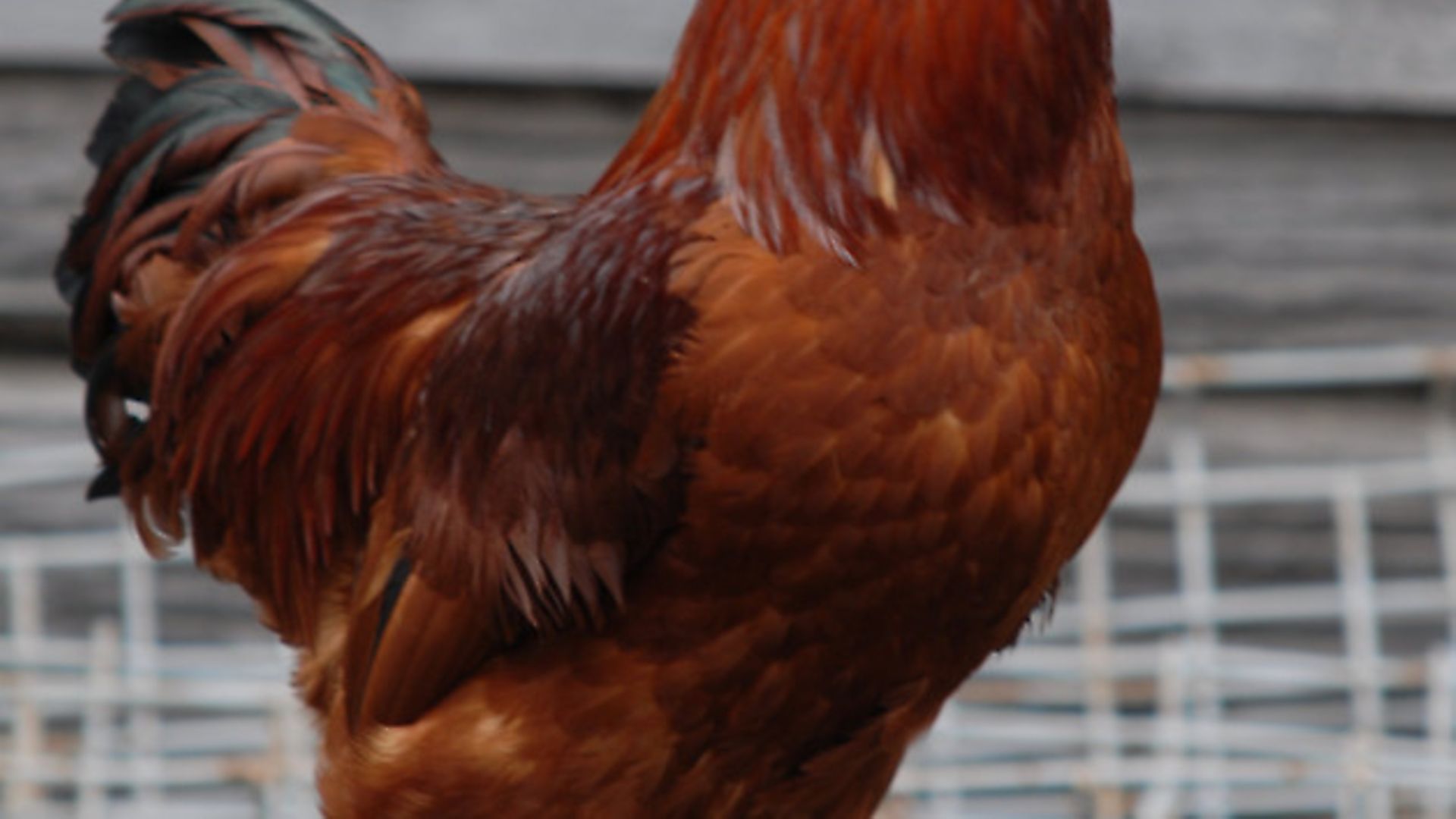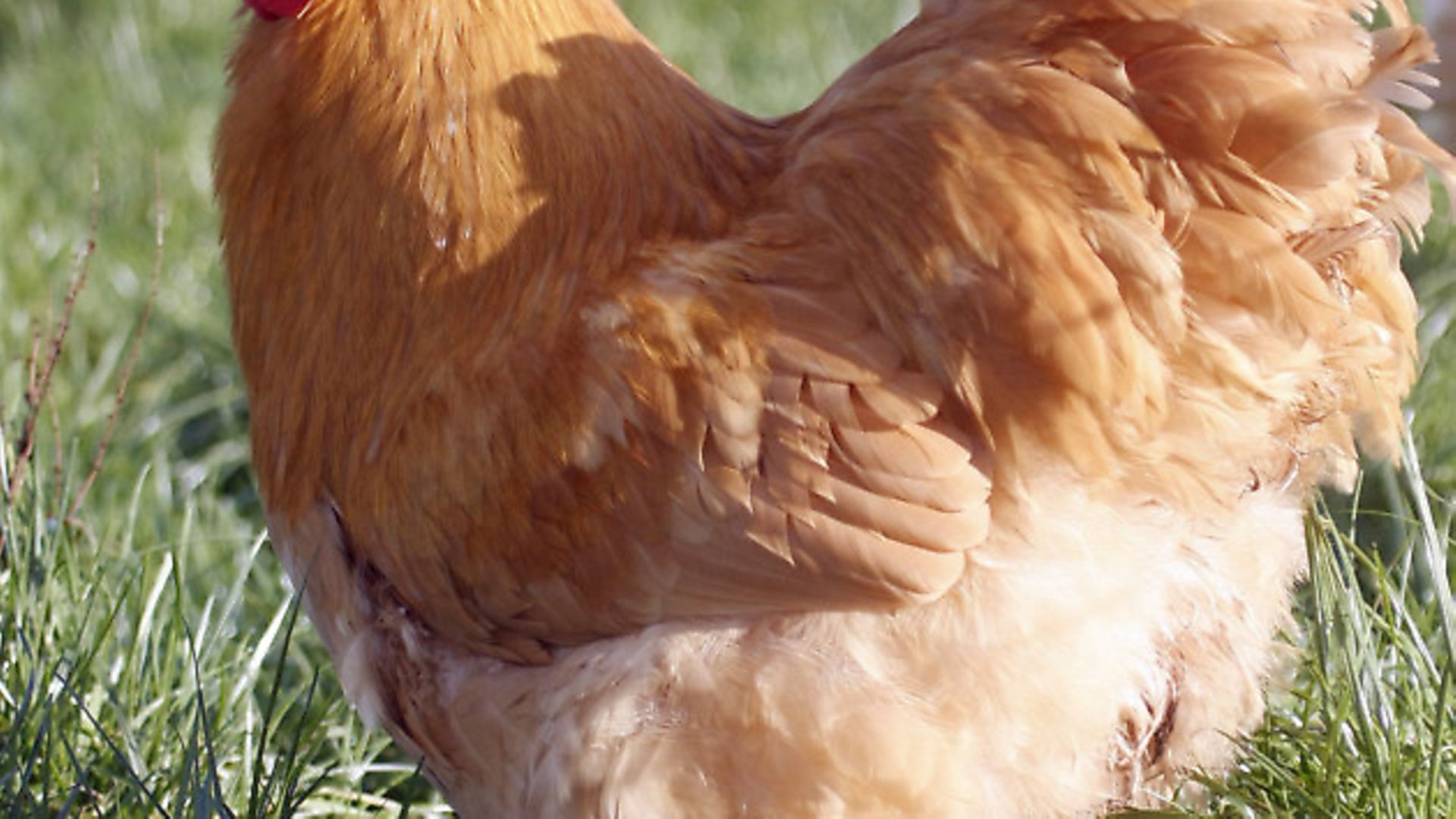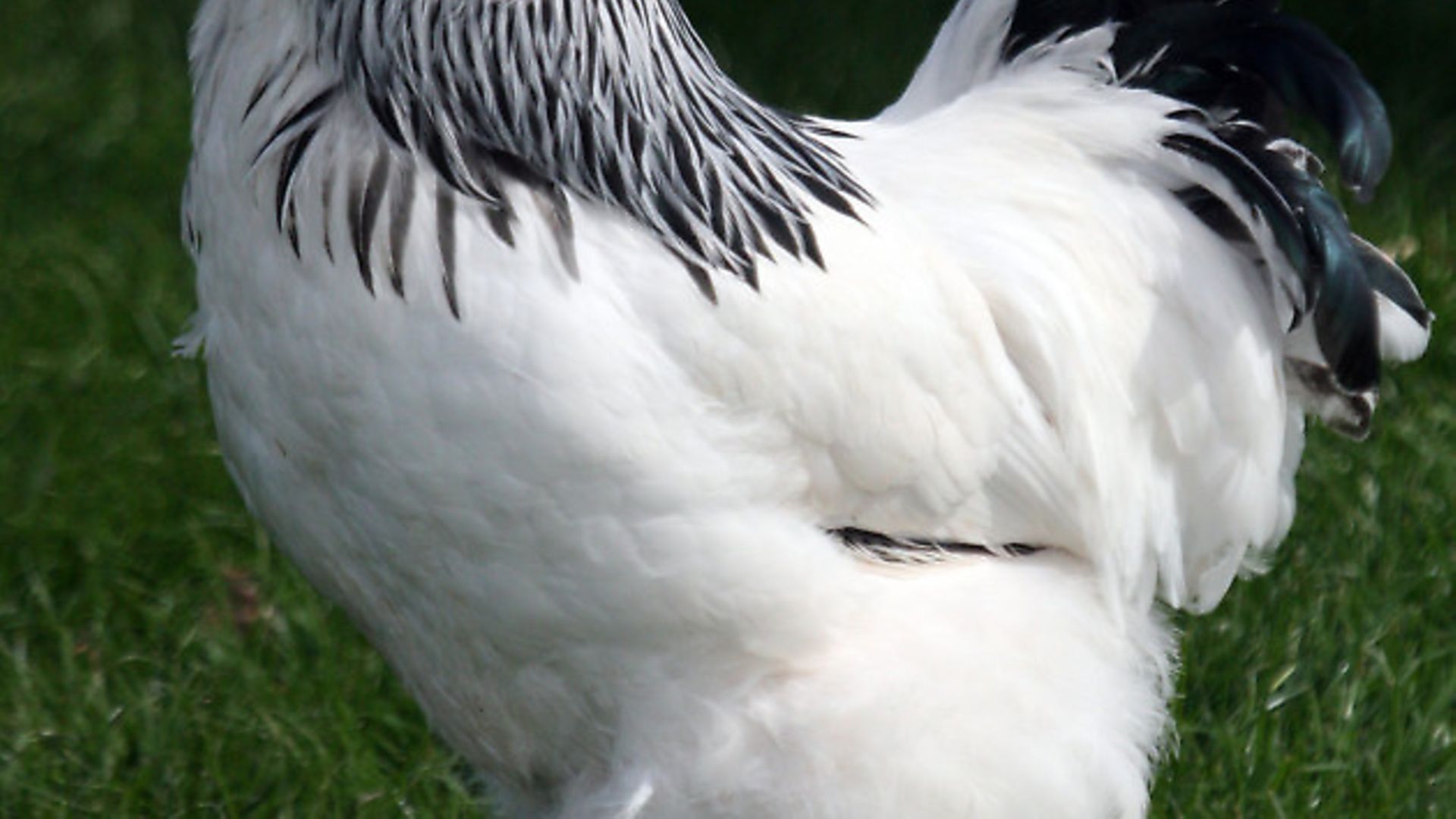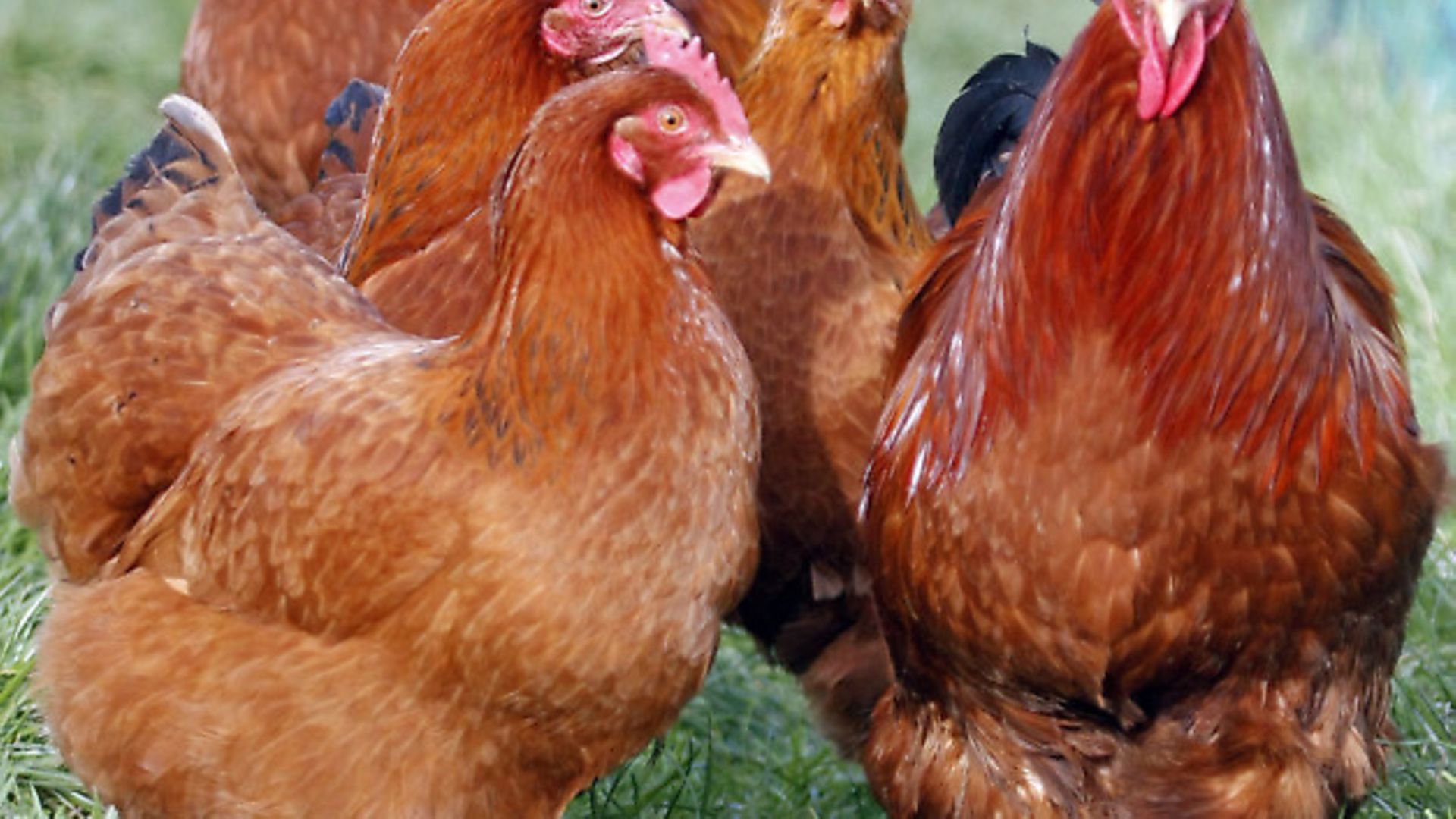Psychologist Dr Nicola Davies recently took a look at the behaviour of chicken keepers. This month it is the chickens themselves that are on the couch! Nicola, our ‘Chicken Shrink’, takes a close look at the wide variation in chicken personalities.

If you have kept chickens for a while, you will have noticed how breeds have very different characters. Some are docile, while others are more spirited. Some enjoy being handled, whilst others are more independent. Some are very inquisitive, and others just mind their own business. Choosing the right breed for you would be considerably simplified if you knew what to expect from some of the popular breeds. Of course, you might be more interested in egg production, in which case you should still consider personality, if only because you’ll be sharing your garden with your chickens and need a breed you can live with.
Just like different breeds of cats and dogs have a predisposition to certain personality traits, the same is true of chickens. Let’s take a look at why certain breeds suit specific people.
Silkies
If you’re looking for a docile breed with a sweet temperament, Silkies are usually a good choice. They’re the Persian kittens of the chicken world thanks to their shock of ornamental, hair-like plumage and, if you’re hoping for good layers, then Silkies also fit the bill. Silkies are among the most popular breeds and it’s easy to see why. Their cute, fluffy appearance can awaken children’s protective instincts. At the same time, they’re high maintenance birds and, if they get cold and wet, they get sick easily. Silkies need to be kept out of rain and muck and need a bit of looking after. They make up for this with their sweet nature but, if you’re looking for an easy pet that doesn’t need much care, they’re probably not for you.

Orpingtons
Orpingtons are a docile breed and both hens and roosters have a well-deserved reputation for friendliness. They’re big, heavy, practical birds who lay well and they’re satisfying pets for children and adults alike. You’ll also get the benefit of knowing that you’re nurturing a British breed that has become rare in recent times. If you’re looking for a steady and reliable breed, Orpingtons are the perfect choice. They’re calm, low maintenance birds who love being part of a flock. They get used to handling and enjoy it as long as you start off with ‘cuddling’ when they’re young. If you’d like an easygoing, contented pet that’s good with kids, Orpingtons could be for you.
Sussex
If you’d like a chicken with an enquiring mind and a surprising amount of intelligence, then the Sussex chicken is for you – they’re known for their lively curiosity. Whenever you’re outdoors, they’ll follow you around in the hope that something interesting (preferably involving food) might happen. This makes them favourites with those who enjoy the element of companionship in the human chicken relationship. As if that wasn’t enough, they’re among the best layers you can get and are remarkably hardy besides having really beautiful plumage.

Rhode Island Reds
The Rhode Island Red, with its glossy russet plumage, is a beautiful breed with a bossy yet easy-going personality. These big birds are among the best egg-layers and they’re hardy into the bargain. They certainly inspire respect and affection. Rhode Islanders chose this chicken as their emblematic Rhode Island bird and chicken fanciers the world over have found the perfect personality match in the Rhode Island Red. However, beware if you’re planning to keep them in a confined space; Rhode Island Reds are assertive birds who don’t like sharing. If you keep this bird in a mixed flock that includes milder-mannered birds, they’re quite capable of turning into bullies. The roosters have also been known for aggression towards children.
New Hampshire Reds
If you’d like big, russet chickens without the feistiness of the Rhode Island Red, the New Hampshire Red might be the chicken you’re looking for. These calm and affectionate birds enjoy human contact and sitting on your lap is the high point of their day. They’re not aggressive and they’re cold –hardy birds that lay well.

Polands
If you’re someone who loves nurturing a sweet little scaredy-cat, then you’ll love the Poland. It’s a highly ornamental breed, but the bouffant ‘hairdo’ of feathers limits their vision and leads to some rather odd but appealing behaviours. If you and your family love eccentric and entertaining pets, the Poland will not disappoint. Egg laying varies from fairly good to poor – the one disadvantage of this pretty breed. A word to the wise: don’t mix this breed in a flock with more outgoing birds as it’s going to end up bottom of the pecking order. However, if an affectionate and amusing pet is what you’re looking for, you’ll enjoy keeping these chickens.
Cochins
If you’re more interested in a friendly, fluffy, feathered friend than a great layer, then you’ll love Cochins. Queen Victoria kept Cochins and adored them thanks to their friendliness and superb mothering instinct. Their outgoing nature makes them good companions for people of all ages. They’re attractive birds too and, if you’re an aspiring breeder, there’s plenty of genetic variability to play around with. On the downside, their feathery feet are inclined to get messy in wet weather – so much so that they even need baths and they’re quite sensitive to hot weather.
Campines
The Campine is an energetic and beautiful breed but is not particularly docile. However, these low maintenance birds are excellent foragers and egg layers and are known for creative egg-hiding that adds an extra element of fun to egg gathering. These birds are ideal for those who admire independence in their pets and who are amused by ‘too clever by half’ antics. Getting your daily dose of feel-good hormones has never been easier. It’s also nice to know that these lovely birds are a rare breed with a long history. The first known records referring to this chicken date back to the time of Julius Caesar.
Mixing it up
If you’d like to start a mixed flock with a variety of interesting breeds, go ahead. You might end up getting the best of everything. Daphne Krige, who keeps chickens in South Africa and loves her mixed flock, says: “There are all sorts in my flock and they’re a constant source of fun and entertainment besides providing my family with lovely fresh eggs.” At the same time, you should check on how various breeds fare in mixed flocks. For instance, the Cornish is a slow-moving bird that is often picked on when kept in mixed flocks with more active birds. Silkies and Polands also tend to be more delicate and should not be kept in mixed flocks with larger birds as they will be unable to hold their own.
Breeds that just won’t work well as pets
The breeds discussed so far all make excellent pets, but are some chicken breeds unsuitable as pets? The breed that most people will tell you should be avoided is the Leghorn. It’s a flighty, nervy bird with a penchant for escaping and, by all accounts, is nearly impossible to build a relationship with – unless you count ‘Where is that infernal chicken?’ as a relationship. They’re noisy too: a fact that means you’re likely to be unpopular with your neighbours. Even breeds that make good pets could be a problem for you if you don’t have the time to maintain them. Silkies are a good example. If you can’t give them a bit of extra care and attention, they might not live long.
Do your homework
There are hundreds of different breeds of chicken from all over the world. Make sure you research their temperament, size, hardiness, and inherent suitability for the conditions you intend to keep them in. As you will have realised, you should also look into their temperament to see how well they’ll mix with your flock and, if you’re looking for pets you can get along with, a little research into their personality will be of help.
———————–
This article is from the October 2014 issue of Your Chickens magazine
Image(s) provided by:
Archant







